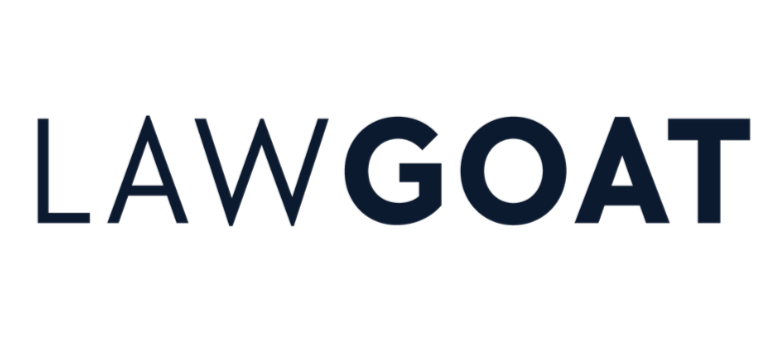Reimagining the Modern Law Firm: How AI Can Unlock Productivity and Trust
Written by
LawGoat Team
May 4, 2025
3 mins read
In today's fast-paced world, effective time management is crucial for success. Whether you're a busy professional, entrepreneur, or student, mastering time management techniques can help you maximize productivity and achieve your goals. In this blog post, we'll explore some proven strategies for managing your time more effectively and boosting your productivity.

Reimagining the Modern Law Firm: How AI Can Unlock Productivity and Trust
Step inside a law firm today and you’ll see the same intensity playing out across offices large and small.
Associates spend long hours sifting through case law. Paralegals manage mountains of documents, trying to keep track of deadlines and filings. Managing partners toggle between high-stakes client meetings and endless streams of administrative details. Legal work demands accuracy and sound judgment, but the daily routine is weighed down by repetitive tasks that pull attention away from strategy and advocacy.
A shift is already underway. Intelligent systems are beginning to take on some of this heavy lifting, allowing legal professionals to direct their energy back toward the work that truly matters.
These tools are not here to replace attorneys. Instead, they are designed to support them by streamlining the most time-consuming aspects of the job and creating more space for thoughtful analysis and meaningful client engagement.
Why AI Has a Place in Law
Skepticism is natural in a profession that depends so deeply on accuracy, ethics, and confidentiality. But the opportunities presented by AI align closely with the challenges that have long made legal work so demanding.
One of the most visible applications is in research and review. Where lawyers once had to comb through thousands of pages to find relevant precedents or contractual clauses, AI can now analyze documents at scale in minutes. Rather than draining time on the search itself, attorneys can concentrate on interpreting and applying the insights they need.
Case management also becomes less cumbersome with intelligent systems keeping track of deadlines, surfacing key information, and organizing communications across teams.
Contracts benefit as well. Instead of drafting from scratch or manually scanning for risks, lawyers can work from drafts prepared by AI tools that highlight unusual clauses and flag potential issues. Even litigation strategy gains a boost through predictive analysis of past cases, helping attorneys anticipate likely outcomes and prepare accordingly.
In each of these examples, lawyers remain the final decision-makers. The technology serves as a foundation that makes their expertise more effective and their time better spent.
Preparing Firms for AI
For any modern law firm, adopting AI should feel like a careful, deliberate process rather than a sudden leap.
The first step is often starting small. Many firms pilot new tools in narrow areas such as contract review or intake management, where results can be measured and trust can be built gradually.
Security must remain a priority throughout this process. With sensitive client information at stake, AI systems should be evaluated against the highest standards of encryption, privacy, and compliance.
Oversight is another essential element. AI-generated drafts or recommendations should never bypass attorney review. Instead, these outputs become starting points for human expertise, which ensures both accuracy and accountability.
To reinforce this balance, firms benefit from setting clear policies that explain how AI is used and making those policies transparent to clients. The process becomes even smoother when staff are trained not only on the mechanics of the tools but also on the best ways to integrate them into existing workflows.
When legal expertise and data literacy combine, firms find themselves well prepared to step into this next chapter of practice.
The Real Impact on Productivity
The most profound change AI offers is not simply speed. It is the redistribution of time and energy across the firm.
Associates gain more freedom to focus on analysis and reasoning rather than long nights of repetitive research. Partners can make decisions with clearer, real-time updates rather than chasing details through email threads and scattered notes. Paralegals shift from filing mountains of paperwork to providing more meaningful case support.
The client experience also improves. Faster responses, more accurate timelines, and sharper strategies create a sense of efficiency that builds trust. Productivity becomes measured not by the number of hours billed but by the quality and effectiveness of the work produced. This shift benefits both the firm and the client, turning efficiency into a shared value rather than an internal metric.
Building Confidence Along the Way
Caution has always been a defining trait of the legal profession, and many attorneys worry about confidentiality, bias, or losing control of their processes. These concerns are valid, and they can be addressed by framing AI as an extension of practice rather than a replacement for it.
Confidentiality remains secure when firms choose systems that meet regulatory and ethical standards. Human judgment continues to guide every outcome, with AI providing support rather than authority.
Transparency also becomes a powerful tool for building trust, as existing clients see clearly that technology is being used to serve their interests more effectively.
Over time, confidence grows as results accumulate. When firms experience fewer errors, smoother processes, and stronger client relationships, the advantages of AI become difficult to ignore. What once seemed like a risk begins to feel like an asset.


A Future Built on Balance
The law firm of tomorrow will be defined less by the size of its document stacks and more by the quality of its strategy, relationships, and results. Intelligent systems will form the infrastructure that makes this possible, ensuring lawyers can devote more of their time to advocacy and guidance.
This is not the end of traditional practice. It is the evolution of it. By approaching AI adoption with care, security, and transparency, modern law firms can create an environment where technology enhances rather than diminishes their work. The outcome is a profession that feels more focused on its purpose: protecting rights, guiding decisions, and serving clients with clarity and confidence.
Be The First To Experience LawGoat for Lawyers
Sign up for early access


.png)
.svg)
.png)
